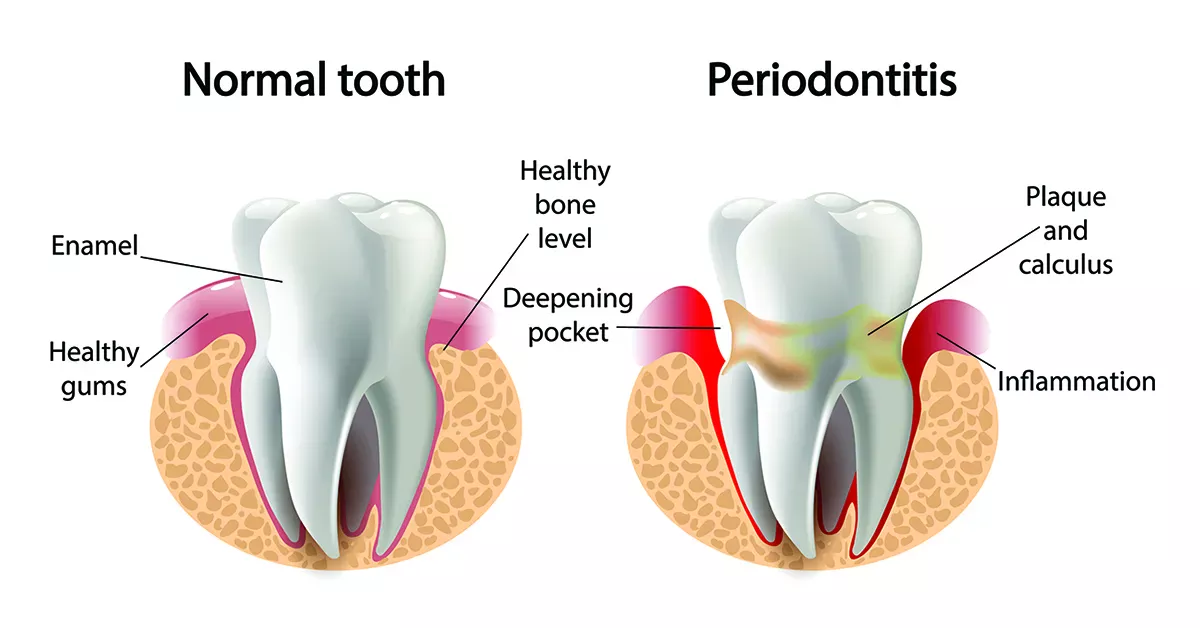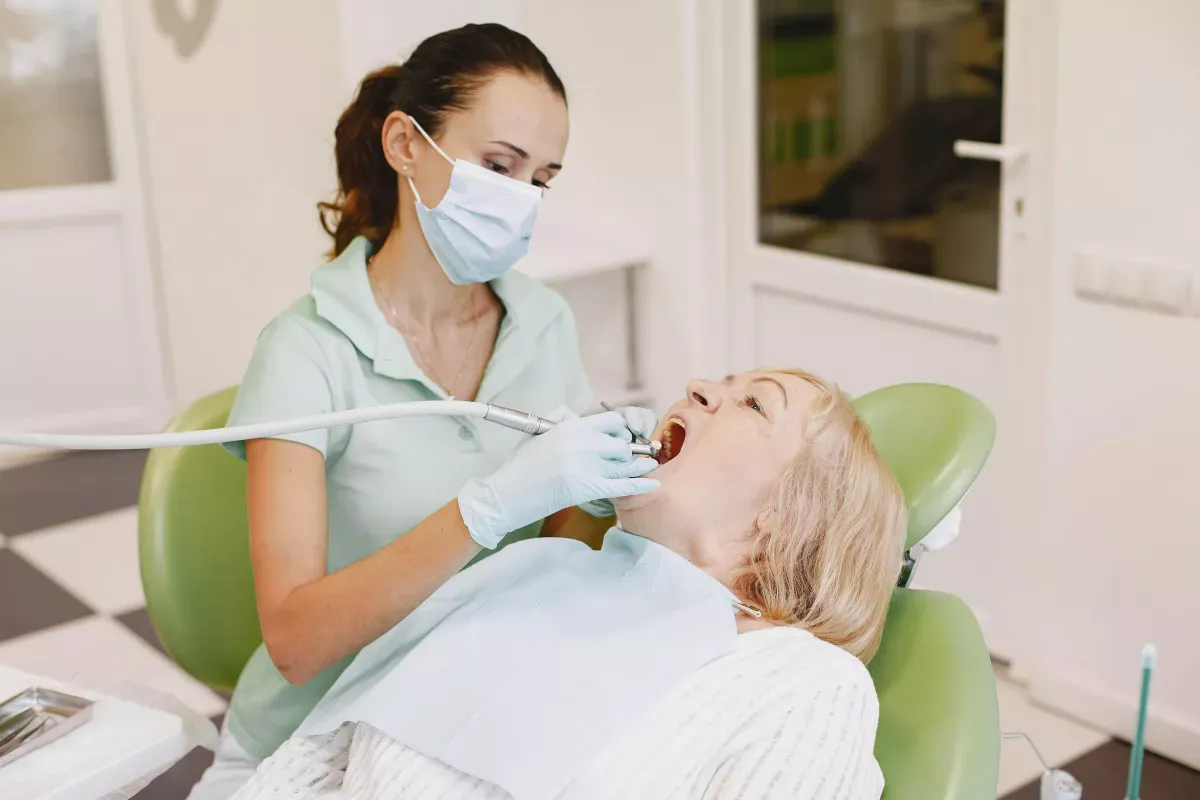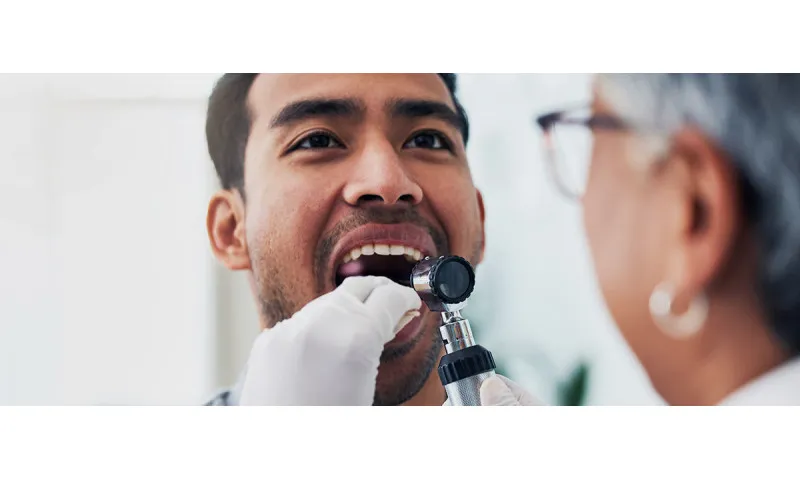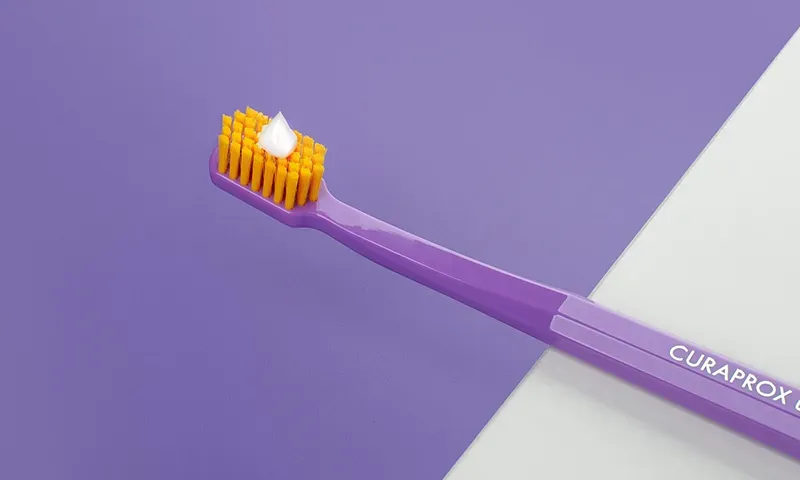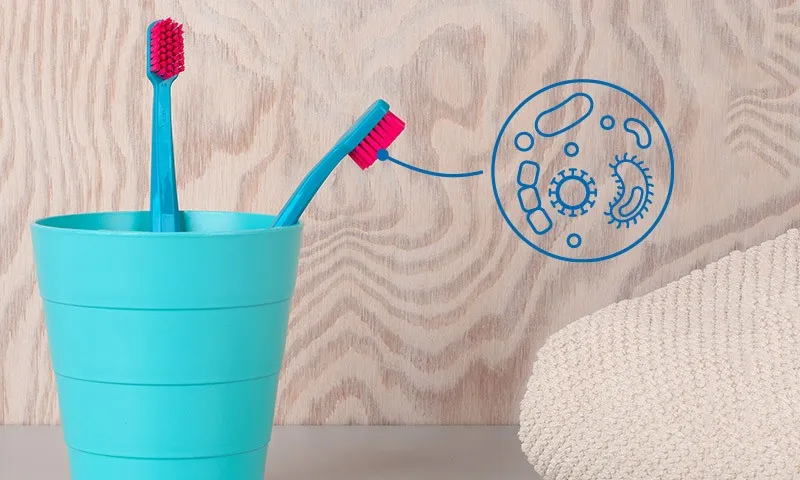Why does the menopause affect teeth?
The menopause is a natural transitional phase in which the female body changes its hormone production. This change usually takes place between the ages of 45 and 55 and lasts for several years. Around two years before the start of the last menstrual period, the body begins to reduce the production of the female sex hormone oestrogen. Although the hormone oestrogen is usually associated primarily with fertility and pregnancy, it also plays an important role in the blood circulation of the subcutaneous fatty tissue and in strengthening the bones. As oestrogen levels fall, the body simultaneously releases more adrenaline. As the gums have hormone receptors, the hormonal fluctuations of the menopause do not leave the teeth unaffected. They affect the blood flow to the gums and can even have an impact on the bone substance in the jaw.
Good to know:
It's nothing new that hormones have an impact on dental health: teeth and gums are also more susceptible to tooth decay and periodontitis during pregnancy. Find out what you need to look out for during pregnancy in our article:
Symptoms: What problems can occur with teeth during the menopause?
The lack of hormones during the menopause can cause numerous symptoms in women's mouths:
Gingivitis and bleeding gums during the menopause
During the menopause, inflammation of the gums is often caused by hormones (technical term: hormonal gingivitis). Due to the decrease in oestrogen production, the connective tissue in the gums becomes weaker, softer and more sensitive. It often swells initially, making it easier for bacteria to penetrate and cause gingivitis. This can quickly lead to bleeding gums when brushing your teeth. A vicious circle then often begins: when the gums bleed, many women become anxious about brushing their teeth and brush less frequently or less thoroughly in order to prevent further bleeding. Unfortunately, this is counterproductive as it allows the inflammation to spread undisturbed. In addition, plaque builds up, which provides the ideal breeding ground for further bacterial growth. This also increases the risk of tooth decay, which can lead to toothache during the menopause. It is therefore all the more important to continue to brush your teeth thoroughly despite bleeding gums and to visit the dentist regularly.
Good to know:
How exactly does gingivitis actually develop? And how can it be treated? Find out in our article:
Periodontitis during the menopause
If constant gum inflammation is not treated, it can develop into periodontitis. This is not just a superficial inflammation of the gums. Rather, it is a deep-seated inflammation of the periodontium. This disease is also the main cause of gum recession in old age and can even lead to tooth loss: The inflammation causes the gums to recede further and further, resulting in so-called gingival pockets. At an advanced stage, the jawbone also recedes so that the teeth are no longer firmly anchored in the jaw but are loose. Periodontitis is the most common cause of tooth loss in old age. As there is an increased risk of gum inflammation during the menopause, it is all the more important to visit the dentist regularly to prevent the development of periodontitis.
Good to know:
If periodontitis is recognised at an early stage, it can still be brought to a standstill. This can prevent tooth loss. You can find out exactly how periodontitis is treated here:
Dry mouth during the menopause
Many women complain of dry mouth during the menopause. This is because saliva production decreases due to the change in hormone levels. Unfortunately, a dry mouth is not only unpleasant, but can also pose a risk to teeth. This is because saliva fulfils a number of important functions: It has an antibacterial effect, hardens tooth enamel and neutralises harmful acids. So if less saliva is produced during the menopause, teeth, gums and oral mucosa are no longer optimally protected. As bacteria can now multiply more easily, the risk of tooth decay and inflammation of the gums and oral mucosa increases. Bacteria are also the culprits behind bad breath - accordingly, bad breath is also a symptom of hormonal changes during the menopause. Dry mouth can also lead to cracked corners of the mouth and dry lips during the menopause. Another side effect of dry mouth is constant thirst.
Falling oestrogen levels can also reduce bone density and thus favour the development of osteoporosis. There are already indications that there is a connection between osteoporosis and periodontitis. Osteoporosis could therefore also be a cause of brittle teeth. This connection is currently still being researched.
Good to know:
What to do about dry mouth during the menopause? And how can you protect your teeth with reduced saliva production? You can find out all this in our article:
Burning mouth syndrome during the menopause
For some women, the hormonal changes during the menopause are characterised by a burning sensation in the mouth - particularly often a burning tongue. Burning mouth or tongue often gets worse during the day and can even be unbearable in the evening. The sensation of pain can be described as burning, itching or tingling. The intensity varies from person to person. The burning sensation can also occur on the palate and lips. Burning mouth syndrome is caused by dry mouth, which makes the oral mucosa more sensitive to pain. Anyone suffering from a burning tongue should avoid foods that can cause an inflammatory reaction. These include gluten, sugar, artificial sweeteners and industrially produced vegetable oils.
Good to know:
What exactly does an anti-inflammatory diet look like? You can find everything you need to know here:
Changes in flavour during menopause
Some women experience changes in taste and sense of smell during the menopause. This can vary greatly from person to person: While some women notice a metallic taste in their mouth, other women would describe the taste in their mouth as sweet, sour or salty. Some women also complain of a strange odour in their nose or nausea.
Difficulty swallowing and sore throat
Dry mucous membranes during the menopause are not just limited to the mouth area. The mucous membranes in the throat and pharynx also become drier. This can cause unpleasant symptoms:
- Sore throat
- Mucus in the throat/throat lump
- Dry throat/throat
- Hoarseness
- Swallowing difficulties
- Increased susceptibility to infections
Tips for healthy teeth during the menopause
Fortunately, you can do a lot yourself to keep your teeth and your entire mouth healthy during the menopause despite hormonal changes. We have summarised the most important tips for you here:
Healthy nutrition
Sugar is poison for your teeth and a favourite food for bacteria. Caries bacteria feed on sugar (including fructose and lactose). So try to eat as little sugar as possible and also reduce acidic foods - they attack your tooth enamel.
Good to know:
What does a healthy diet actually look like and how can you positively influence your dental health? Find out in our article:
Keep your mouth moist
To get rid of the dry feeling in your mouth, one thing helps above all: drink a lot! Menopausal women should drink at least two litres (ideally water and unsweetened tea). Sugar-free lozenges and chewing gum can also help against dry mouth.
Good to know:
The 'Black is White' chewing gum from Curaprox not only tastes limey-minty fresh, but also supports the natural whiteness of the teeth and takes over the important protective functions of the tooth enamel: it is antibacterial and remineralises the tooth enamel thanks to hydroxyapatite.
Regular visits to the dentist
Especially during the menopause, it is important that you attend regular check-ups with your dentist. This will allow your dentist to take early action if any problems with your teeth develop. One or two professional dental cleanings per year are also a good idea. The dental professionals remove tartar, where bacteria feel particularly at home.
Good to know:
What is the most efficient tooth brushing technique? How long should you brush your teeth? Before or after eating? Here you will find answers to all your questions about brushing your teeth:
Thorough dental care
The most important thing at the end: The be-all and end-all for protecting your teeth is and remains very thorough dental care. We have listed the most important points for you here:
- Brush your teeth twice a day with a soft toothbrush (in the morning after breakfast and in the evening before going to bed)
- Use fluoride toothpaste to protect your teeth from tooth decay (tip against dry mouth: the Enzycal toothpaste range from Curaprox stimulates saliva production)
- Clean interdental spaces once a day with an interdental brush
- Clean your tongue once a day with a tongue scraper
Sources
ÄrzteZeitung: Menopause: Hormonal deficits cause gaps in women's mouths.
Bayerische LandesZahnärzte Kammer: Mundgesundheit in den Wechseljahren, on: zahn.de.
Dentlounge: Dental problems during the menopause - an outlook.
Dr Achim Gauchel: Menopause - the teeth are also affected.
Dr Jung Dental Clinic: Menopause: The teeth are also affected!
Dr Will Cole: Burning Mouth Syndrome: A Functional Medicine Look At This Increasingly Pervasive Health Problem.
Women's health portal: What is the menopause?
Willaredth, Anne: Menopause and infections: Cold again? and sensory disorders during the menopause, on: avogel.ch
Menopause: Dental health and menopause: Beautiful teeth into old age.
All websites last accessed on 24/09/2023.
 Swiss premium oral care
Swiss premium oral care

